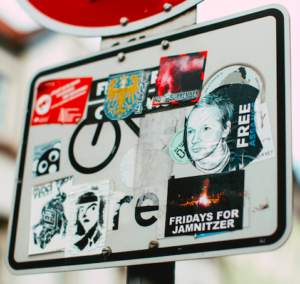![]()

By Amber Bereznyckyj, History and Creative Writing student at the New College of the Humanities
Julian Assange’s case began in 2010 when the Swedish Government presented two sexual assault claims against him. To prevent detainment, Assange sought refuge in the Ecuadorian Embassy as the UK Government tried to extradite Assange to Sweden. He remained there (with his family) until 2018 when he questioned the Ecuadorian Embassy over his continued house arrest after the sexual assault claims were dropped. He subsequently broke the terms of his house arrest and received a fifty-week prison sentence in the UK. It is important to recognise that his situation was originally due to molestation and rape allegations and not freedom of speech; something which is usually brushed over in reports. As journalist Sady Doyle put it: progressives are ‘reluctant’ to admit that someone so significant to social change could be guilty of such serious crimes.
Prior to seeking refuge in the Embassy, as the creator of Wiki Leaks, Assange had to frequently change his identity and residence due to fear of imprisonment or assassination. As a result of this paranoia, during house arrest, he promoted his activist reputation in the media (such as Steve Kroft’s’ 60 minute interview) concerning freedom of speech in order to create a public image that would ensure protection from the US government and others that WikiLeaks have exposed through the UN and a number of other NGOs.
According to the official documents detailing court proceedings between Judiciary of England and Wales district judge, Vanessa Baraitser, versus the US Government; March 2018 saw the US charge Assange with 18 counts of conspiracy. The first count was detailed as “conspiracy to obtain national defence documents” such as the Guantánamo Bay detainee assessment briefs. The counts hold a ten-year sentence and hear in lies the issue. Under the first amendment, journalists have the right to leak classified information, yet government officials do not have the right to whistle-blow under this amendment. The US would argue that Assange is not an official journalist but rather a political hacker. However, Assange released all documents from anonymous sources with a neutral standing, providing evidence that he did not seek to ‘obtain’ the documents but rather was given them to publish. This allowed him to argue that his actions were covered by his legal right under the first amendment and that the US was trying to suppress free speech. If all leaked documents are reliant on voluntary government disclosures, this is likely to lead to government manipulation of the press, less accuracy when reporting, and the ultimate suppression of free speech.

Despite this, a major argument against his case has been the release of the Afghanistan war logs in 2008, a testament to both US atrocities and Assange’s own recklessness. The logs document cover ups on a regular basis, especially with the sheer number of civilian deaths that the units log as insurgents. It also documented specialist assassination units such as Task Force 373 who were found to be particularly brutal, one entry accounts a raid which ended with the death of seven children. Assange’s organisation is complex and although they claim to complete risk assessments on 1/6 of published documents; the Afghan war logs publicly revealed the names of 300 Afghans that worked for the US government. This ultimately put those lives in danger, as the UK has seen recently with the initial evacuation of journalists and translators. The US government could have no control over protecting those people named. Bin Laden is said to have used the documents as a threat against betrayers and a way to ‘hunt’ them down. This link was never proven to have caused death and is frequently used as propaganda against Assange. The punishment for Chelsea Mannings (the whistle-blower) was severe, however it is clear that this was due to the political damage the logs caused the government, rather than any physical harm inflicted.
It is not the first time the US has targeted whistle-blowers – the Pentagon Papers (1973) come to mind. Daniel Ellsberg faced a 113 year sentence for exposing Nixon’s sugar coating of the Vietnam War to the public near election time. The charges were eventually dropped. Almost fifty years later, we are faced with a similar situation with Iraq and now Afghanistan. Given they dropped Ellsberg’s sentence, there is precedent to do the same for Assange.
One cannot help but question why the truth is ultimately illegal when it comes to events such as this. If the free press was actually free and not moderated by officials then perhaps the take-over in Afghanistan could have been more readily prepared for, tactically and emotionally. On 18th August, the UK Parliament sat for the debate on the Taliban’s takeover of Afghanistan in which the general consensus was one of defeat and aggressive backlash towards US/UK policy, which was seen to have abandoned Afghanistan’s burgeoning civil society of activists and journalists to Taliban suppression. In the debate, the house questioned the West’s long held legitimacy in upholding liberty and democracy. It should therefore lead to more public awareness about the double standard within western foreign policy. Do we stand for the protection of journalists and free speech which we have seen with the evacuation of vulnerable Afghans; or the suppression of journalists? Clearly this is a matter of whatever suits our side. In that case; it begs the question of whether journalists have ever really exercised free speech and what can be learned from Assange.
What’s important in this story isn’t necessarily Assange because he was clearly driven by the need to avoid Swedish accusations. It is what he represents; as a true journalist and example of free speech. However reckless the man; the US are denying his first amendment right to publish leaked material and although the US reject his publisher title – it has been accepted by the UN and wider media community. With recent events in Afghanistan; one can only imagine what truths can be unearthed. Whether that will be villainised or not, our governments will surely decide.

Contributor to The London Financial
We combine research produced by students and early professionals into a single website, breaking down the barriers to entry individuals face in a number of industries.
Contributor opinions are their own and do not necessarily reflect the stance of the LF.